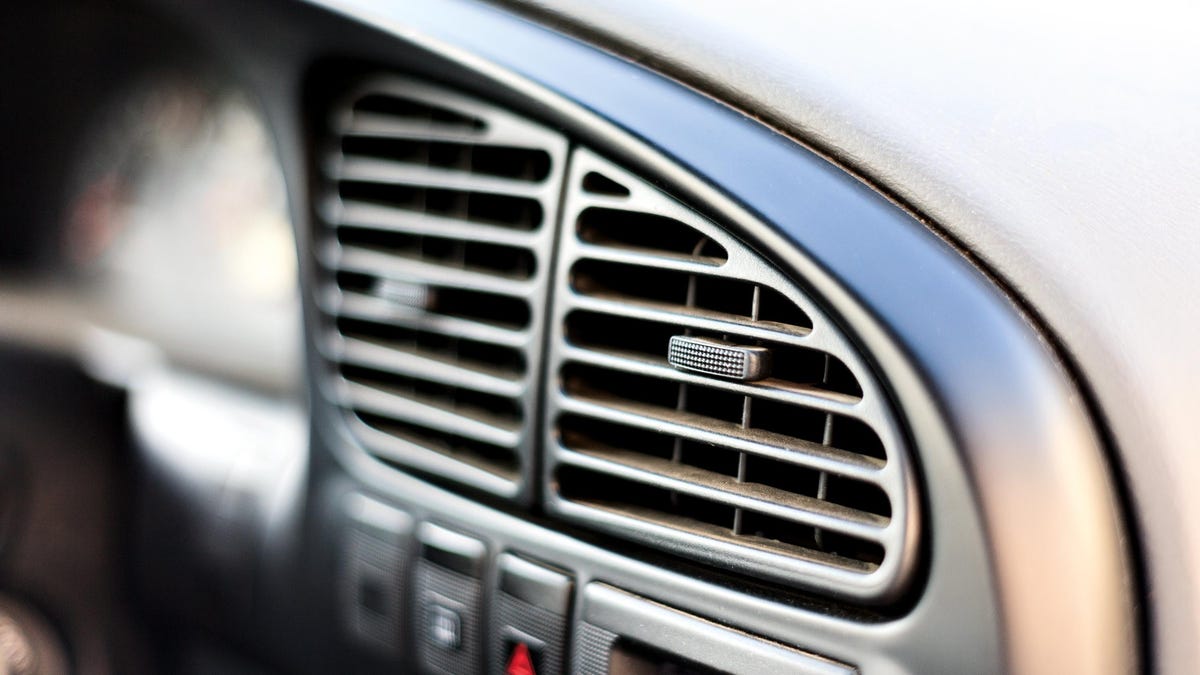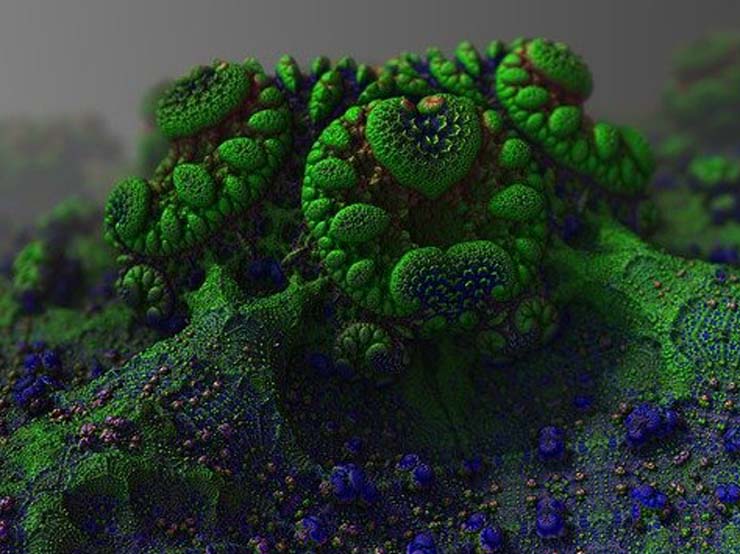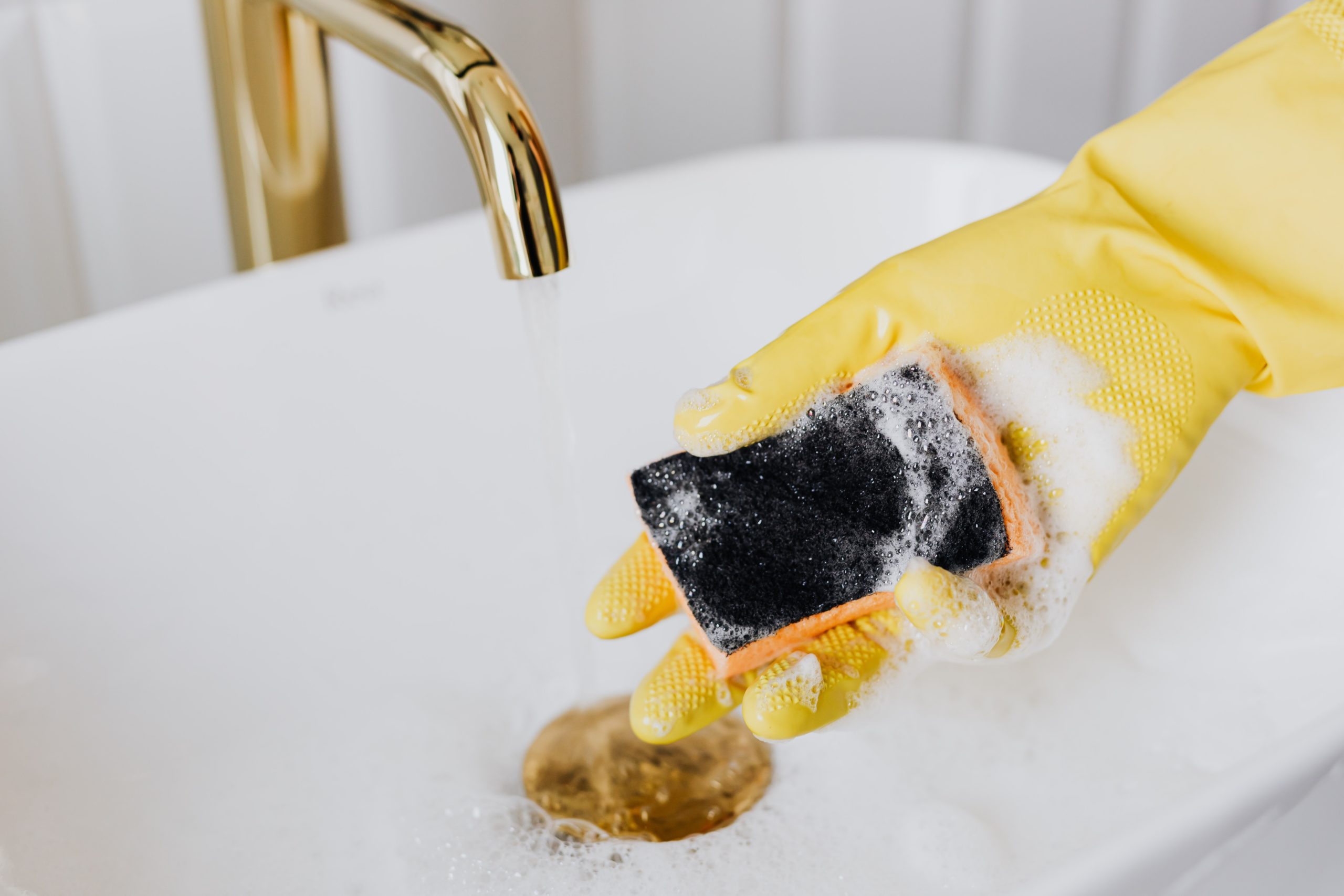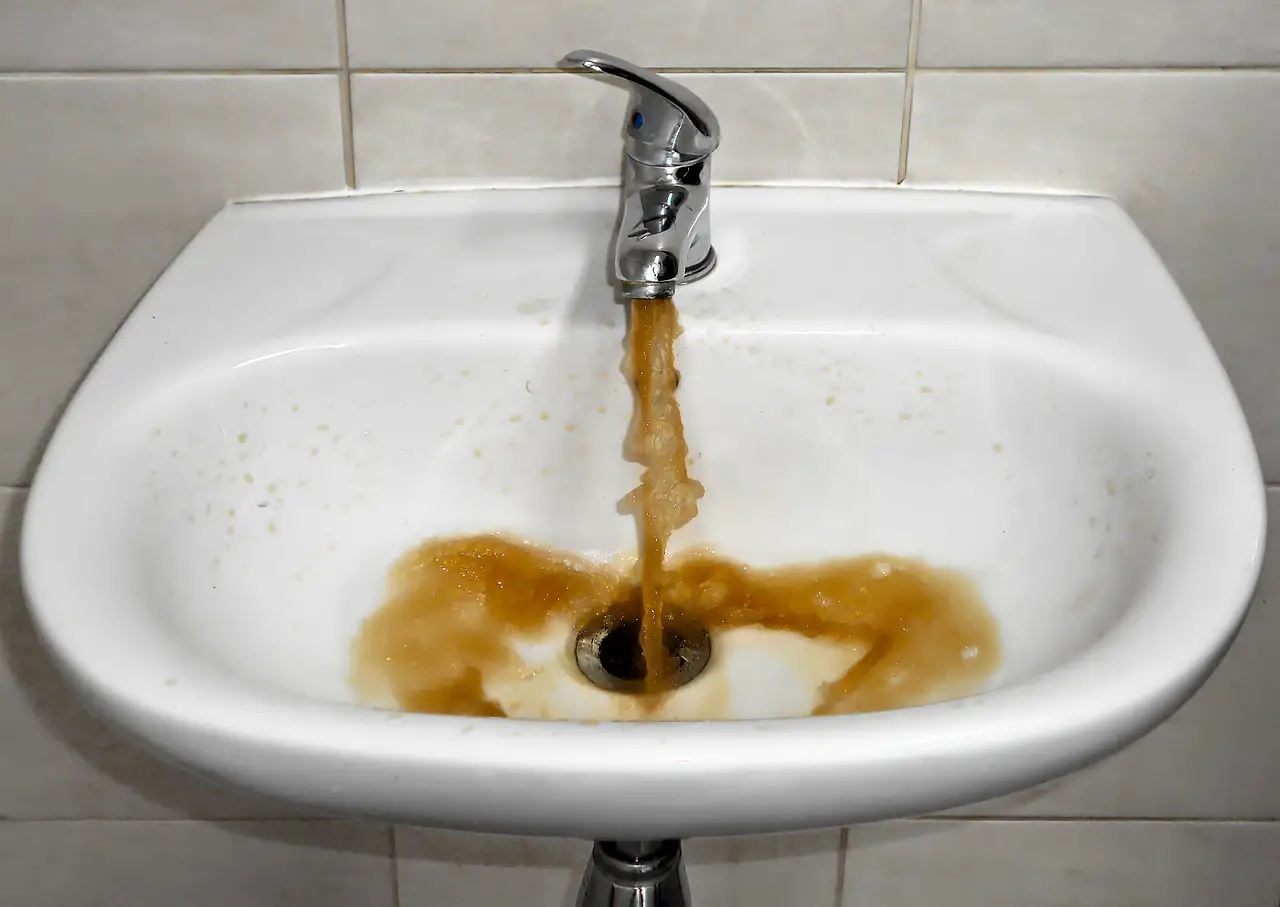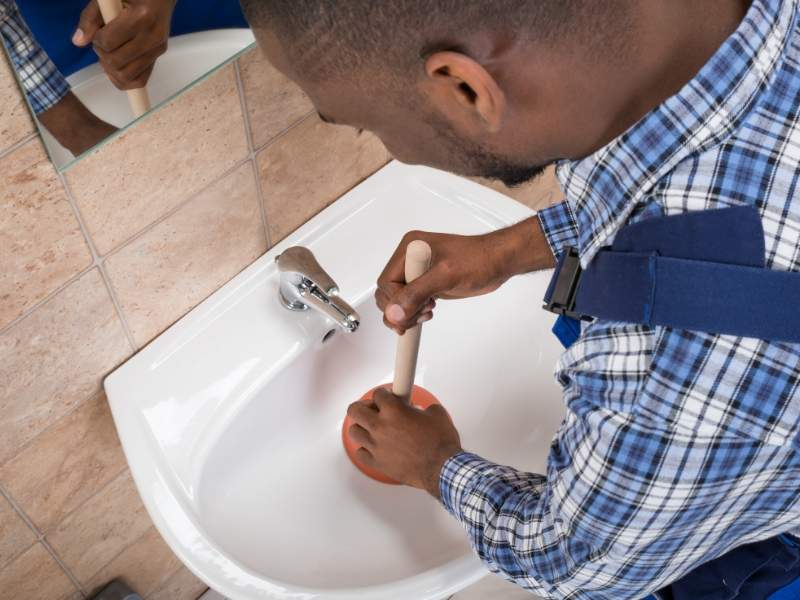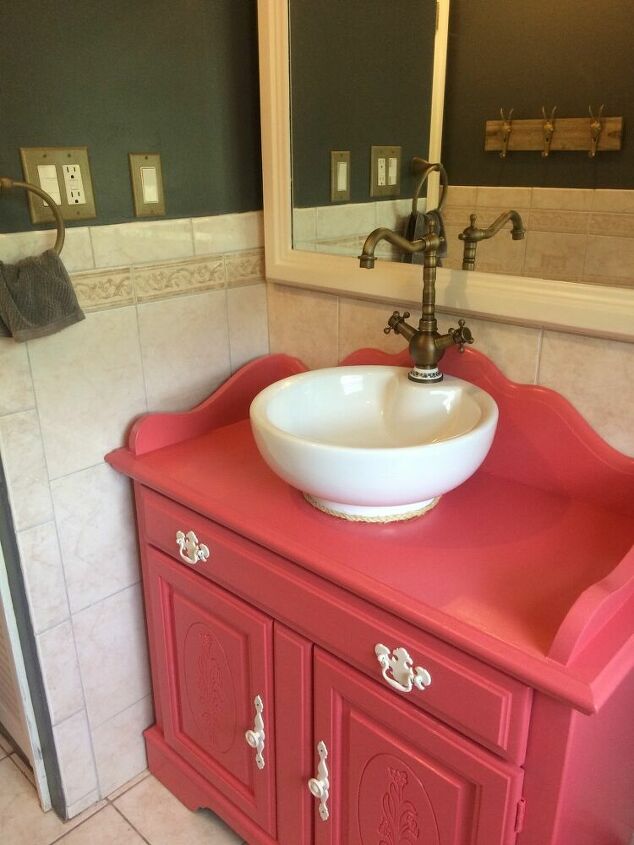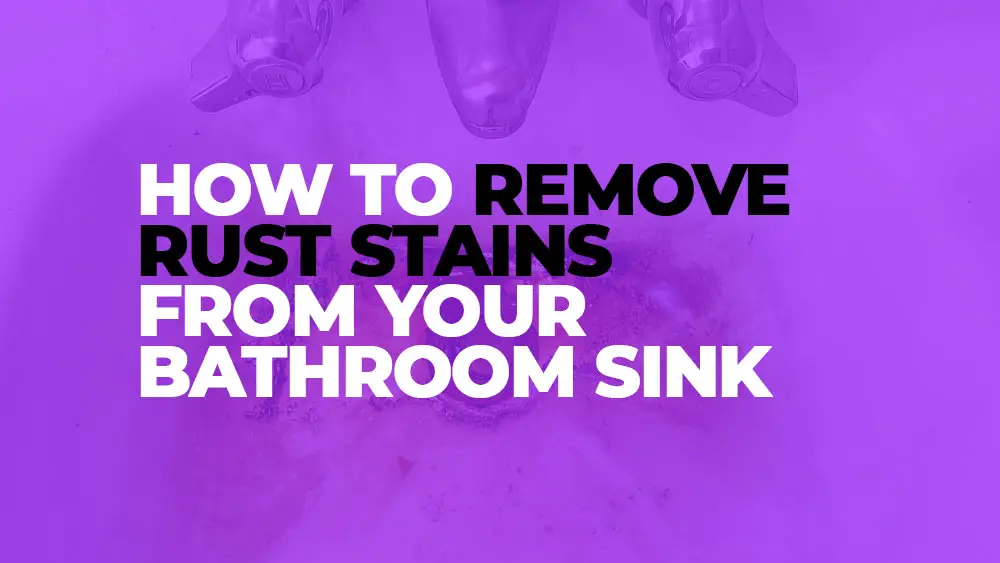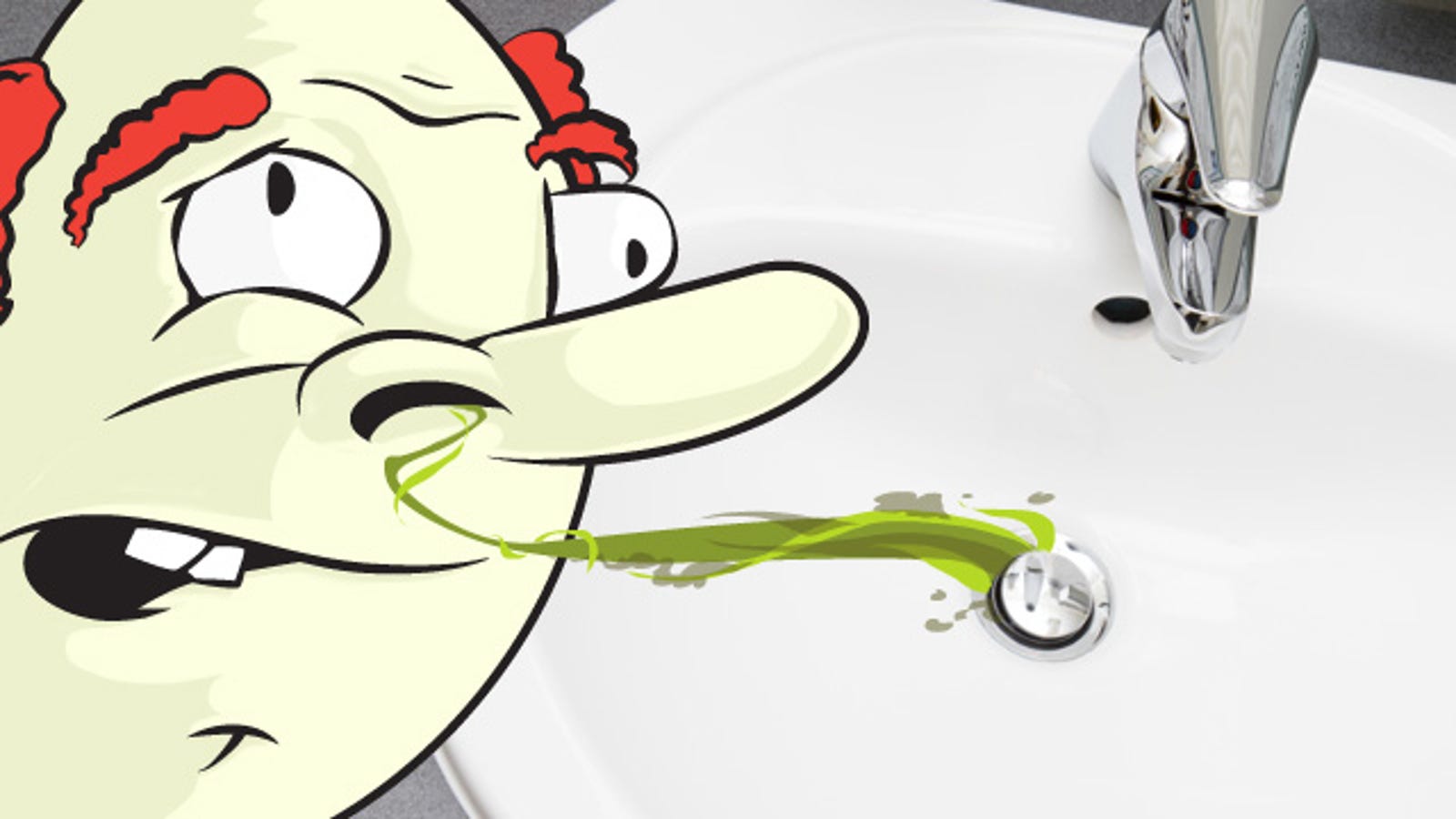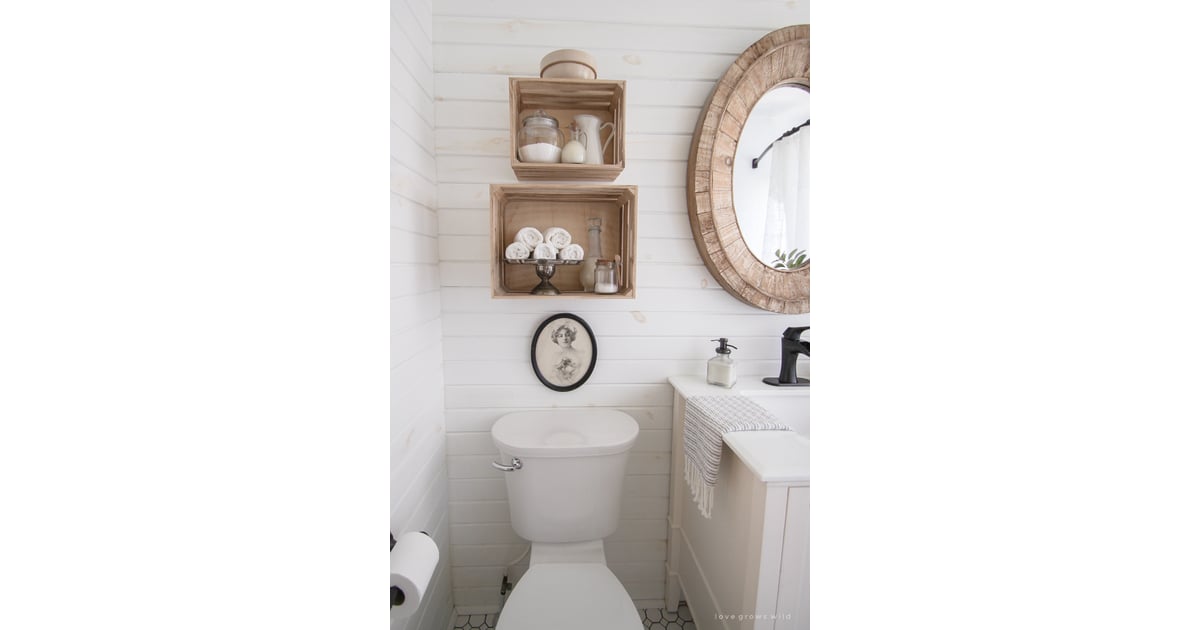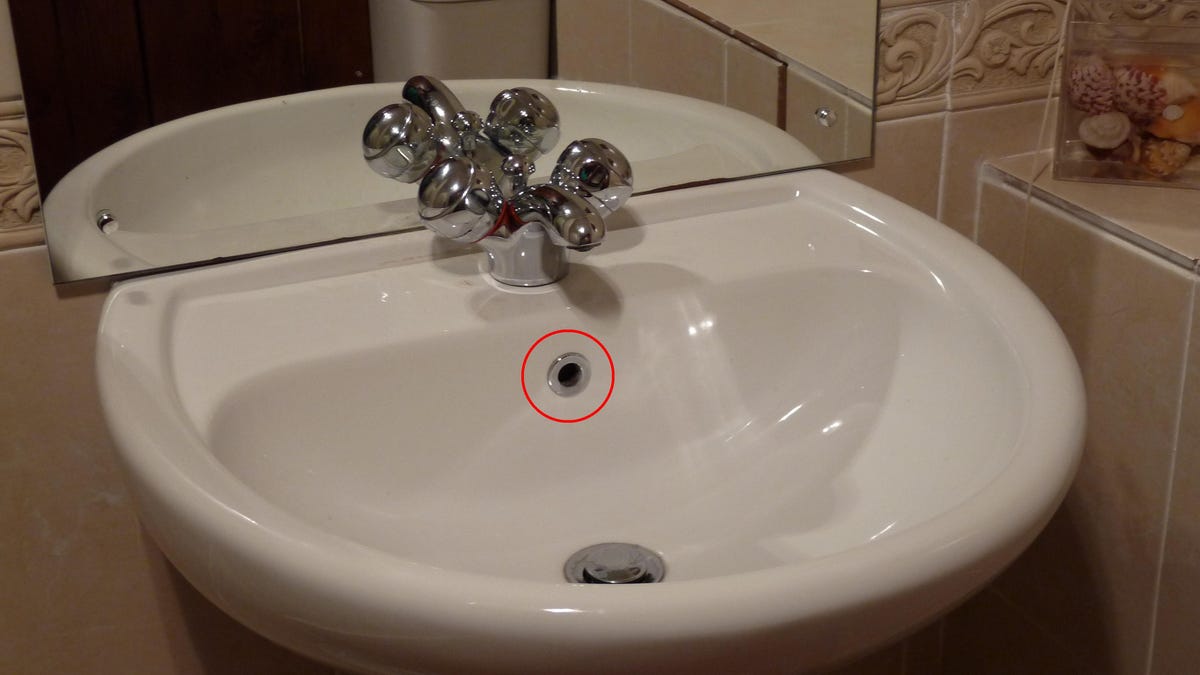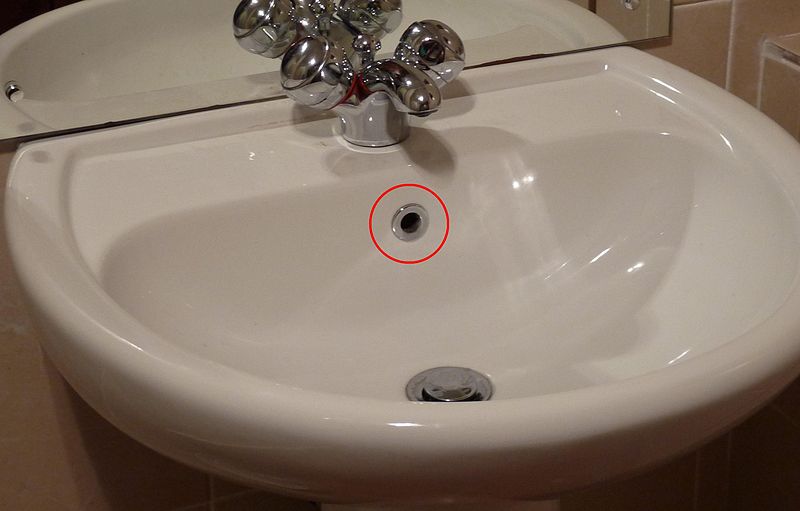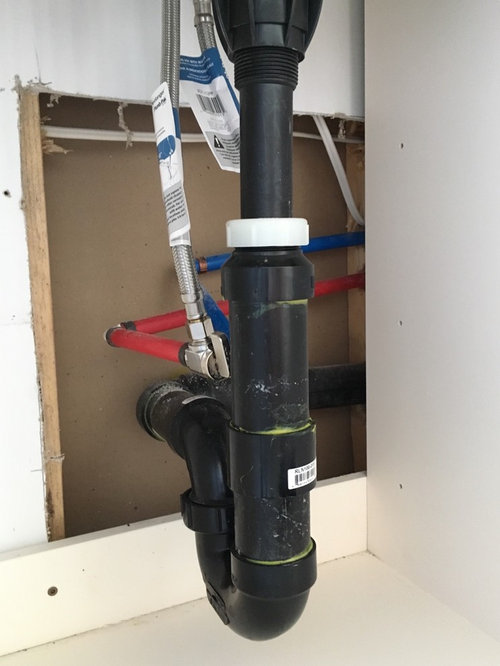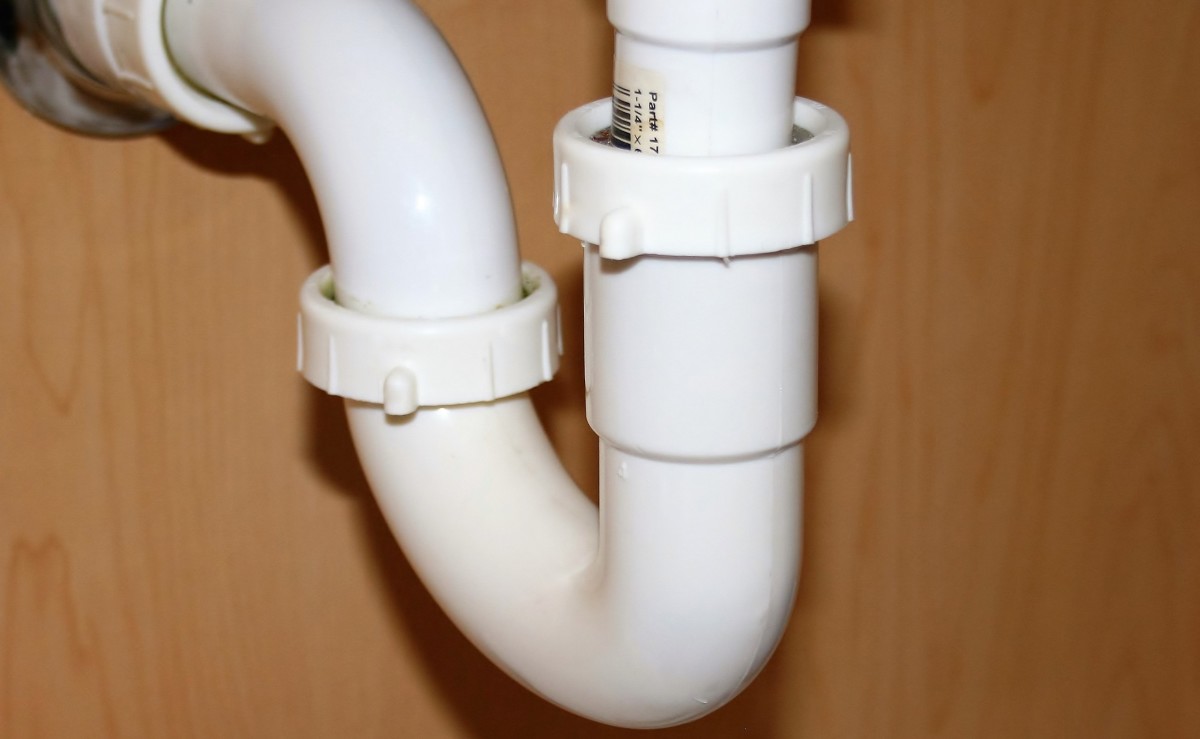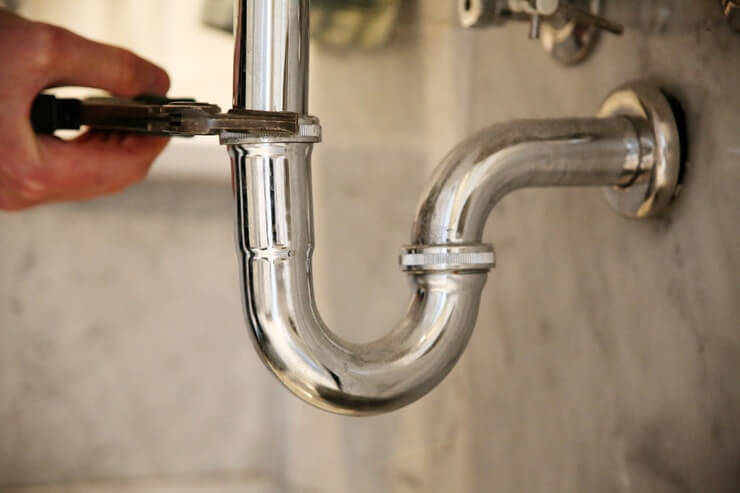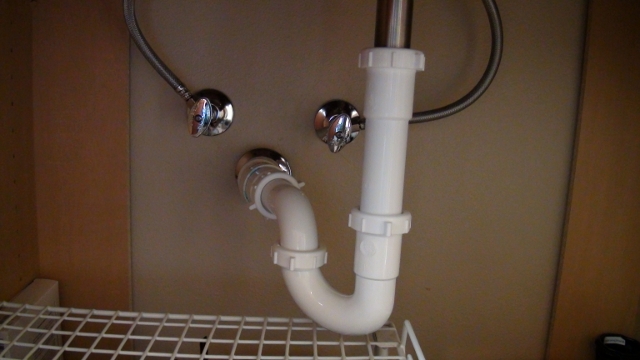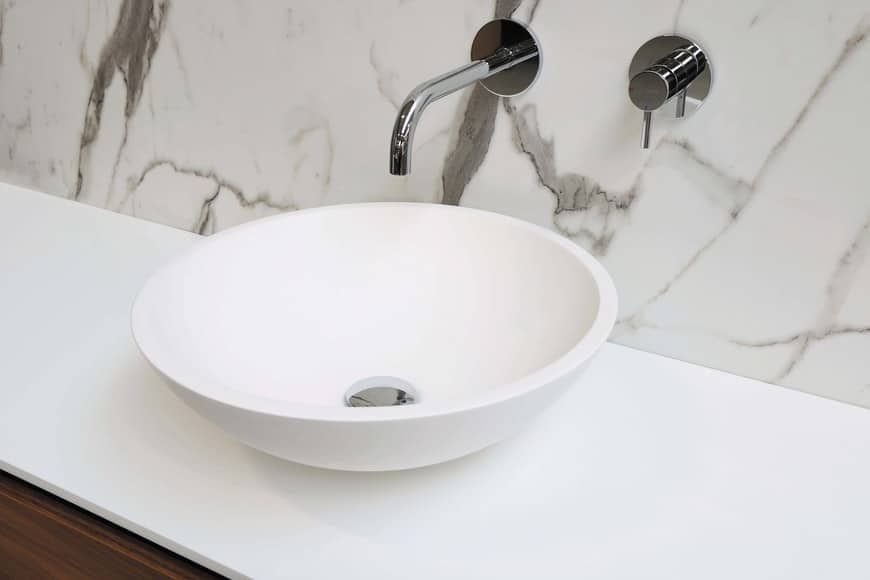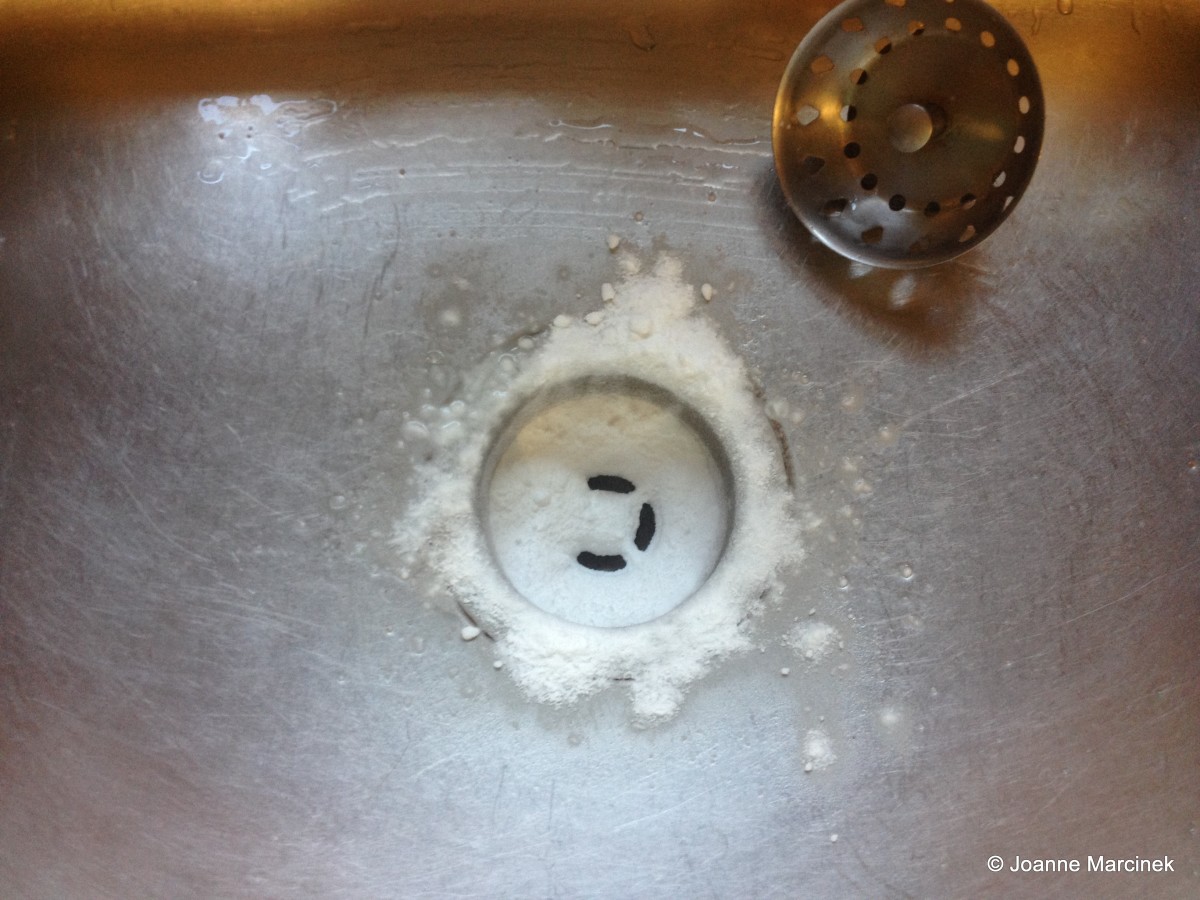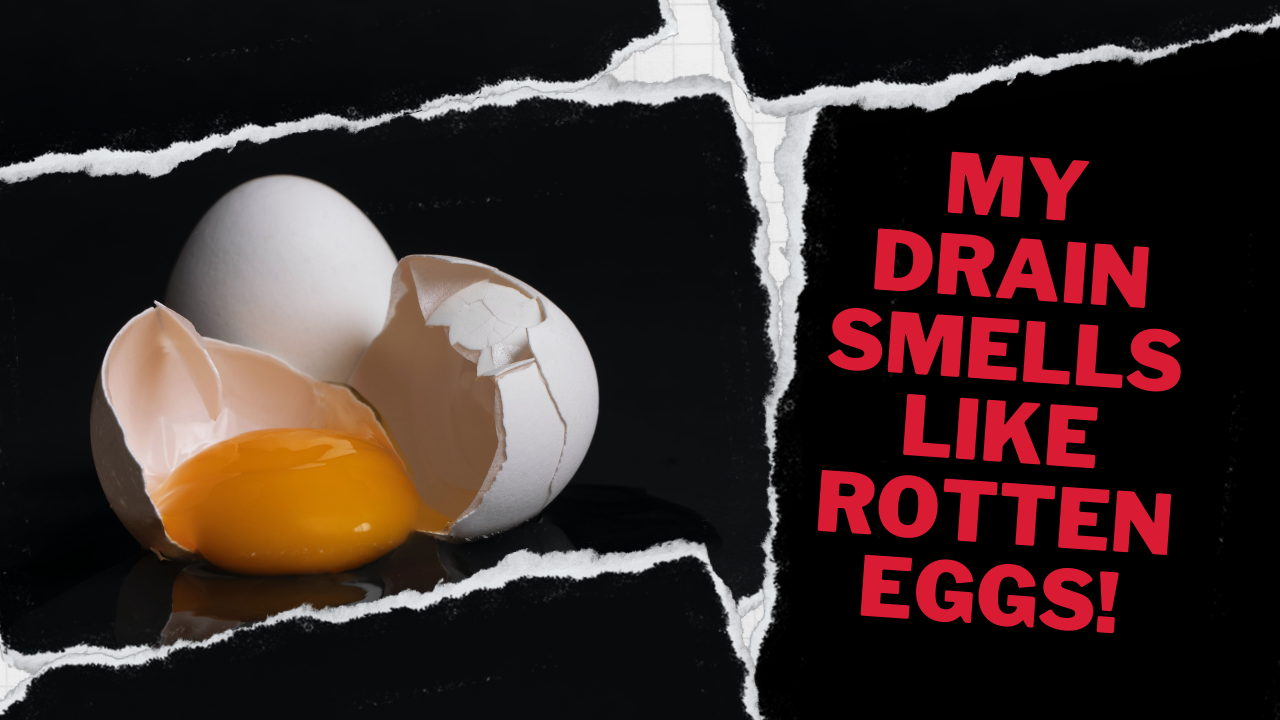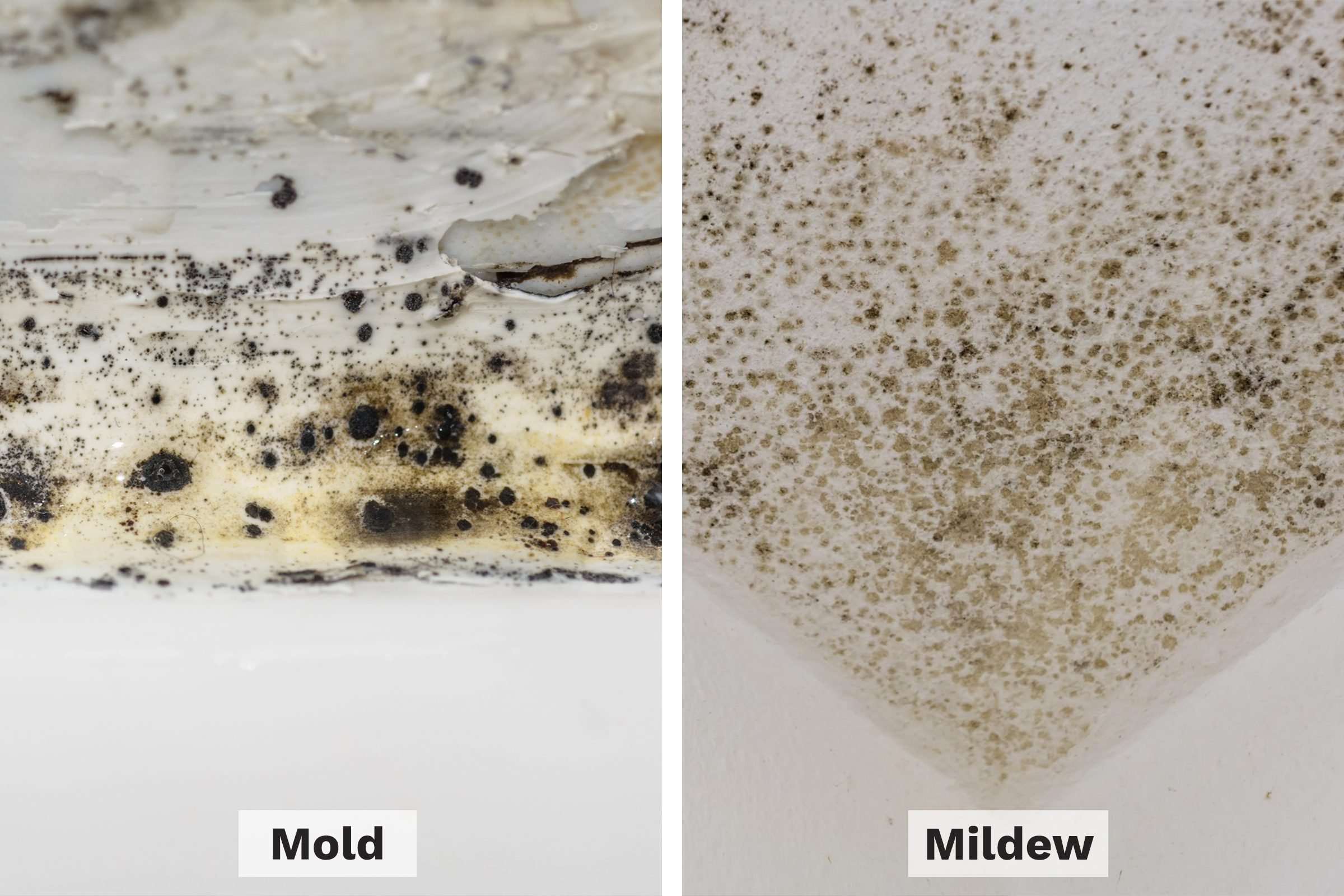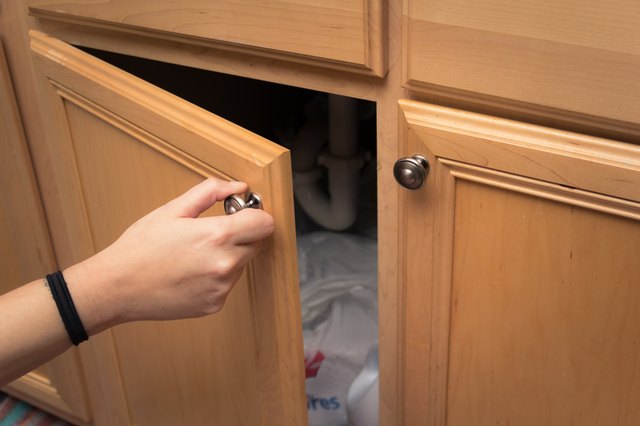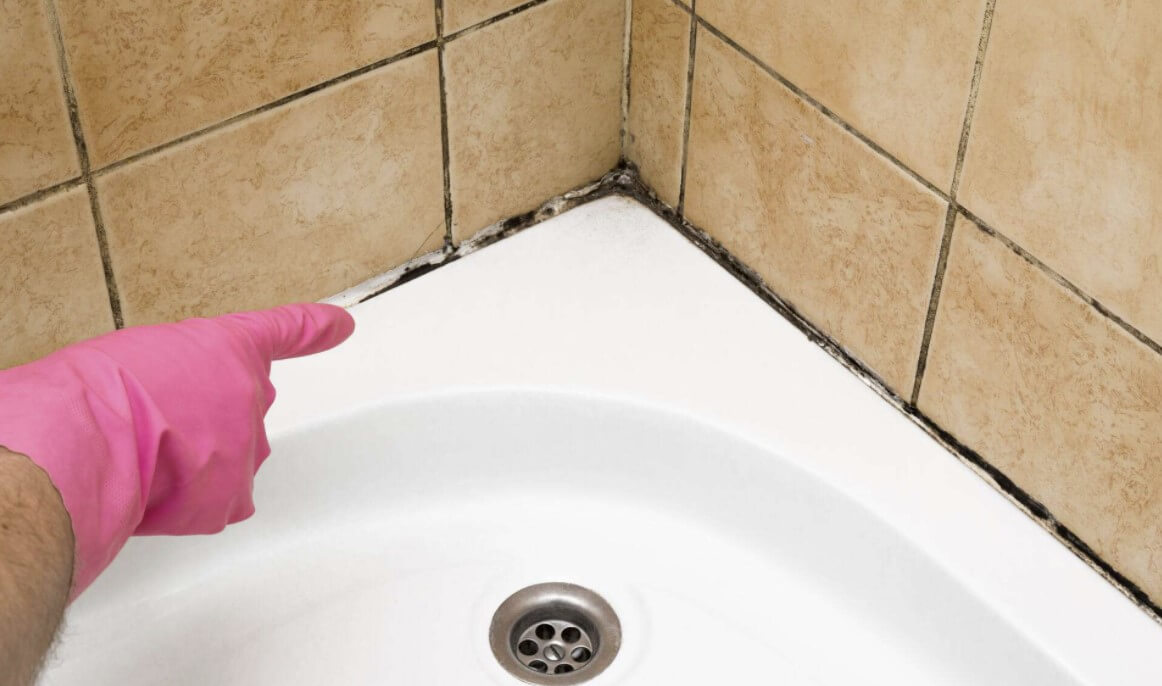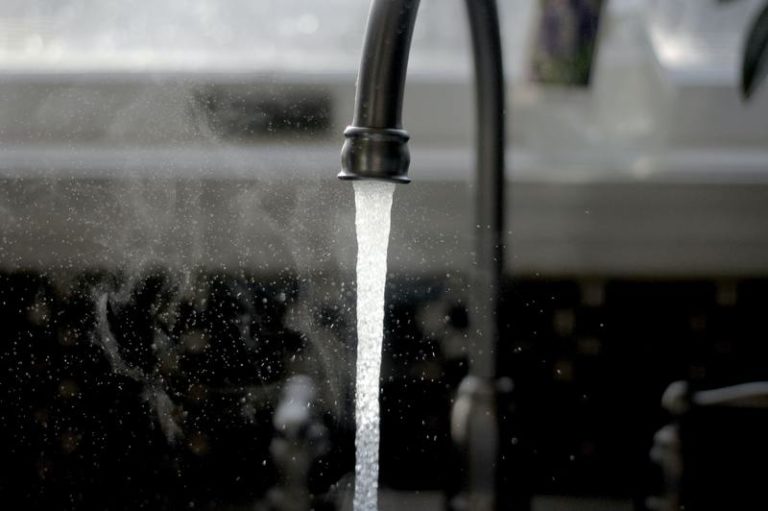Are you noticing a musty smell coming from your bathroom sink? This unpleasant odor can be a sign of a bigger problem that needs to be addressed. Here are some potential causes and solutions for this issue: Clogged drain: One of the most common reasons for a musty smell from the bathroom sink is a clogged drain. This can happen due to a buildup of hair, soap scum, or other debris. To solve this issue, try using a plunger or a drain snake to clear out the blockage. You can also use a mixture of baking soda and vinegar to break down the clog. Old plumbing: If your bathroom sink has old pipes, they may be starting to deteriorate, causing a musty smell. In this case, it's best to call a professional plumber to assess the situation and replace any damaged pipes. Mold and mildew: Another common cause of a musty smell in the bathroom sink is the growth of mold and mildew. These fungi thrive in damp environments, making the sink an ideal breeding ground. Regularly cleaning the sink and keeping it dry can help prevent mold and mildew from forming. You can also use a mixture of water and bleach to kill any existing mold or mildew. Leaks: A musty smell can also be a sign of a leak somewhere in the plumbing system. Check for any visible signs of water damage or standing water around the sink. If you notice any, it's important to call a plumber immediately to fix the leak and prevent further damage. Musty smell coming from bathroom sink
If you're dealing with a foul odor coming from your bathroom sink, it's important to get to the root of the problem. Here are some potential causes and solutions for this unpleasant smell: Bacteria buildup: Over time, bacteria can build up in the drain and cause a foul odor. Regularly cleaning the sink with a disinfectant can help prevent this issue. You can also pour a mixture of hot water and vinegar down the drain to kill any bacteria. Food debris: If you use your bathroom sink to wash dishes or dispose of food, small particles can get stuck in the drain and start to rot, causing a foul smell. Make sure to thoroughly rinse the sink after each use and use a drain strainer to catch any food debris. Blocked vents: Your bathroom sink is connected to a ventilation system that helps remove odors. If this system becomes blocked, it can cause a foul smell to come from the sink. You can try using a plunger or a drain snake to clear out the vent, but it's best to call a professional if you're not comfortable doing it yourself. Old plumbing: As mentioned before, old plumbing can be a breeding ground for bacteria and cause a foul odor. If you suspect this is the case, it's best to call a plumber to assess the situation and replace any damaged pipes. Foul odor in bathroom sink
An unpleasant scent coming from your bathroom sink can be a nuisance and make using the sink unpleasant. Here are some possible reasons for this issue and how to solve them: Dirty drain: Over time, a buildup of hair, soap scum, and other debris can cause a foul smell to come from the bathroom sink. Regularly cleaning the drain can help prevent this issue. You can also use a mixture of baking soda and vinegar to break down any buildup in the drain. Water quality: If you have hard water or water with a high mineral content, it can leave a lingering unpleasant scent in the sink. Installing a water softener can help improve the water quality and eliminate the smell. Missing trap: The u-shaped pipe under your bathroom sink is called the trap and it's designed to catch debris and prevent odors from coming back up the drain. If this trap is missing or damaged, it can cause an unpleasant scent to come from the sink. It's important to replace the trap if it's missing or call a plumber to do it for you. Sewer gas: In some cases, the unpleasant scent coming from the bathroom sink can be due to sewer gas escaping through the drain. This can happen if there is a crack in the pipes or a damaged seal. It's important to call a plumber to address this issue and prevent any potential health hazards. Unpleasant scent from bathroom sink
A stinky bathroom sink can be a major annoyance and make using the sink unpleasant. Here are some possible causes and solutions for this issue: Food debris: As mentioned before, food debris can get stuck in the drain and start to rot, causing a stinky smell to come from the sink. Make sure to thoroughly rinse the sink after each use and use a drain strainer to catch any food particles. Blocked vents: A blocked ventilation system can also cause a stinky smell to come from the sink. This can happen due to a buildup of debris or even a bird's nest. Try using a plunger or a drain snake to clear out the vent, but if that doesn't work, call a professional. Worn out seal: If the seal around the sink is old or damaged, it can allow sewer gas to escape and cause a stinky smell. You can try replacing the seal yourself or call a professional plumber to do it for you. Foreign objects: Sometimes, foreign objects like toys or hairbrushes can accidentally fall down the sink and cause a stinky smell. If you suspect this is the case, try using a drain snake to retrieve the object or call a plumber for assistance. Stinky bathroom sink
A bad smell coming from the bathroom sink can be a cause for concern and should be addressed promptly. Here are some possible reasons and solutions for this issue: Sewer line issues: If your bathroom sink is emitting a bad smell, it could be an indication of a problem with the sewer line. This can happen due to a clog, blockage, or damage to the line. It's important to call a plumber to assess the situation and make any necessary repairs. Decaying organic matter: Sometimes, small pieces of organic matter can get lodged in the drain and start to decay, causing a bad smell to come from the sink. Regularly cleaning the drain can help prevent this issue. You can also use a mixture of baking soda and vinegar to break down any buildup in the drain. Water quality: As mentioned before, water with a high mineral content can leave a bad smell in the sink. Installing a water softener can help improve the water quality and eliminate the smell. Old plumbing: If your bathroom sink has old pipes, they may be starting to deteriorate and cause a bad smell. In this case, it's best to call a professional plumber to assess the situation and replace any damaged pipes. Bad smell in bathroom sink
A sewer smell coming from your bathroom sink can be a cause for alarm and needs to be addressed immediately. Here are some potential causes and solutions for this issue: Blocked vent pipe: The vent pipe connected to your bathroom sink helps remove sewer gas and odors. If this pipe becomes blocked, it can cause a sewer smell to come from the sink. Try using a plunger or a drain snake to clear out the vent, but if that doesn't work, call a professional. Sewer line issue: A sewer smell coming from the bathroom sink can also be a sign of a problem with the main sewer line. This can happen due to a clog, blockage, or damage to the line. It's important to call a plumber to assess the situation and make any necessary repairs. Cracked or broken pipes: If there is a crack or break in one of the pipes connected to your bathroom sink, it can allow sewer gas to escape and cause a foul smell. It's important to call a plumber to fix the damaged pipes and prevent any potential health hazards. Missing trap: As mentioned before, the trap under your bathroom sink is designed to catch debris and prevent odors from escaping. If this trap is missing, it can cause a sewer smell to come from the sink. It's important to replace the trap or call a plumber to do it for you. Sewer smell from bathroom sink
A rotten egg smell coming from your bathroom sink can be a sign of a serious problem and should not be ignored. Here are some potential causes and solutions for this issue: Sewer line issue: If your bathroom sink is emitting a rotten egg smell, it could be an indication of a problem with the main sewer line. This can happen due to a clog, blockage, or damage to the line. It's important to call a plumber to assess the situation and make any necessary repairs. Decaying organic matter: Sometimes, small pieces of organic matter can get lodged in the drain and start to decay, causing a rotten egg smell to come from the sink. Regularly cleaning the drain can help prevent this issue. You can also use a mixture of baking soda and vinegar to break down any buildup in the drain. Water quality: Water with a high sulfur content can leave a rotten egg smell in the sink. Installing a water softener can help improve the water quality and eliminate the smell. Sewer gas leak: If you notice a rotten egg smell coming from your bathroom sink, it could be a sign of a sewer gas leak. This can happen if there is a crack or damage in the pipes connected to the sink. It's important to call a plumber to address this issue and prevent any potential health hazards. Rotten egg smell in bathroom sink
If you're dealing with a mildew smell coming from your bathroom sink, it's important to address the issue before it gets worse. Here are some potential causes and solutions for this issue: Moisture buildup: Mildew thrives in damp environments, so if your bathroom sink is constantly wet, it can start to grow and emit a musty smell. Make sure to dry the sink after each use and regularly clean it with a disinfectant to prevent mildew growth. Leaky pipes: A mildew smell can also be a sign of a leak somewhere in the plumbing system. Check for any visible signs of water damage or standing water around the sink. If you notice any, it's important to call a plumber immediately to fix the leak and prevent further damage. Blocked drain: A clogged drain can also lead to moisture buildup and cause a mildew smell to come from the sink. Use a plunger or a drain snake to clear out the blockage and prevent any potential mildew growth. Improper ventilation: If the ventilation system connected to your bathroom sink is not functioning properly, it can lead to moisture buildup and cause a mildew smell. Make sure the vent is clear and functioning properly to prevent any potential issues. Mildew smell from bathroom sink
A musty odor coming from your bathroom sink can be a sign of a bigger problem that needs to be addressed. Here are some potential causes and solutions for this issue: Clogged drain: A musty smell can be a sign of a clogged drain, which can be caused by a buildup of hair, soap scum, or other debris. Use a plunger or a drain snake to clear out the blockage and prevent any potential musty odors. Mold and mildew: If your bathroom sink is emitting a musty odor, it could be a sign of mold and mildew growth. These fungi thrive in damp environments and can cause health issues if left unchecked. Regularly cleaning and drying the sink can help prevent mold and mildew growth. You can also use a mixture of water and bleach to kill any existing mold or mildew. Leaky pipes: A musty odor can also be a sign of a leak somewhere in the plumbing system. Check for any visible signs of water damage or standing water around the sink. If you notice any, it's important to call a plumber immediately to fix the leak and prevent further damage. Old plumbing: If your bathroom sink has old pipes, they may be starting to deteriorate and cause a musty odor. In this case, it's best to call a professional plumber to assess the situation and replace any damaged pipes. Musty odor in bathroom sink
A foul stench coming from your bathroom sink can be a major annoyance and make using the sink unpleasant. Here are some possible causes and solutions for this issue: Bacteria buildup: Over time, bacteria can build up in the drain and cause a foul stench to come from the bathroom sink. Regularly cleaning the sink with a disinfectant can help prevent this issue. You can also pour a mixture of hot water and vinegar down the drain to kill any bacteria. Foul stench from bathroom sink
The Importance of a Functional Bathroom Sink in House Design

Maintaining a Pleasant Smell in Your Bathroom
 When it comes to house design, the bathroom is often overlooked. However, it is one of the most used and essential rooms in a house. Every aspect of a bathroom, including the sink, plays a crucial role in creating a functional and comfortable space. One common problem that many homeowners face is a foul smell coming from their bathroom sink. This can be a major inconvenience and can even be embarrassing when guests come over. In this article, we will discuss the importance of addressing this issue and how it can greatly improve your overall house design.
Eliminating the Source of the Smell
The first step in solving this problem is identifying the source of the smell. In most cases, it is caused by a buildup of debris, hair, and grime in the drain. This can lead to bacteria growth and create an unpleasant odor. To address this, you can try using a drain cleaner or a plunger to remove any clogs.
Regular maintenance and cleaning of your bathroom sink can also prevent this issue from occurring.
If the smell persists, it may be a sign of a more significant plumbing issue, and it is best to seek professional help.
Improving Air Circulation
Another factor that can contribute to a foul smell in the bathroom is poor air circulation. Without proper ventilation, moisture can build up and cause mold and mildew growth, which can lead to a musty odor.
Investing in a good exhaust fan or opening windows after showering can greatly improve air circulation in the bathroom.
This not only helps eliminate unpleasant smells but also prevents potential health hazards.
Choosing the Right Materials for Your Sink
In house design, choosing the right materials for your bathroom sink is crucial. Porcelain and ceramic sinks are popular options for their durability and easy maintenance. However, these materials can also absorb odors and stains over time.
Opting for a stainless steel or stone sink can be a better choice as they are non-porous and less likely to hold on to smells or stains.
Additionally, they add a modern and stylish touch to your bathroom.
Adding Natural Scents
Finally,
incorporating natural scents
into your bathroom design can greatly improve the overall smell of the space. Essential oils, scented candles, or even fresh flowers can add a pleasant aroma to your bathroom. Just be sure to choose scents that are not too overpowering and are safe to use in enclosed spaces.
In conclusion, a functional and pleasant-smelling bathroom sink is an essential element in house design. By addressing the source of the smell, improving air circulation, choosing the right materials, and adding natural scents, you can greatly enhance your bathroom's overall design. Don't let a foul smell ruin the comfort and functionality of your bathroom. Take the necessary steps to eliminate it and create a pleasant and inviting space for you and your guests.
When it comes to house design, the bathroom is often overlooked. However, it is one of the most used and essential rooms in a house. Every aspect of a bathroom, including the sink, plays a crucial role in creating a functional and comfortable space. One common problem that many homeowners face is a foul smell coming from their bathroom sink. This can be a major inconvenience and can even be embarrassing when guests come over. In this article, we will discuss the importance of addressing this issue and how it can greatly improve your overall house design.
Eliminating the Source of the Smell
The first step in solving this problem is identifying the source of the smell. In most cases, it is caused by a buildup of debris, hair, and grime in the drain. This can lead to bacteria growth and create an unpleasant odor. To address this, you can try using a drain cleaner or a plunger to remove any clogs.
Regular maintenance and cleaning of your bathroom sink can also prevent this issue from occurring.
If the smell persists, it may be a sign of a more significant plumbing issue, and it is best to seek professional help.
Improving Air Circulation
Another factor that can contribute to a foul smell in the bathroom is poor air circulation. Without proper ventilation, moisture can build up and cause mold and mildew growth, which can lead to a musty odor.
Investing in a good exhaust fan or opening windows after showering can greatly improve air circulation in the bathroom.
This not only helps eliminate unpleasant smells but also prevents potential health hazards.
Choosing the Right Materials for Your Sink
In house design, choosing the right materials for your bathroom sink is crucial. Porcelain and ceramic sinks are popular options for their durability and easy maintenance. However, these materials can also absorb odors and stains over time.
Opting for a stainless steel or stone sink can be a better choice as they are non-porous and less likely to hold on to smells or stains.
Additionally, they add a modern and stylish touch to your bathroom.
Adding Natural Scents
Finally,
incorporating natural scents
into your bathroom design can greatly improve the overall smell of the space. Essential oils, scented candles, or even fresh flowers can add a pleasant aroma to your bathroom. Just be sure to choose scents that are not too overpowering and are safe to use in enclosed spaces.
In conclusion, a functional and pleasant-smelling bathroom sink is an essential element in house design. By addressing the source of the smell, improving air circulation, choosing the right materials, and adding natural scents, you can greatly enhance your bathroom's overall design. Don't let a foul smell ruin the comfort and functionality of your bathroom. Take the necessary steps to eliminate it and create a pleasant and inviting space for you and your guests.



